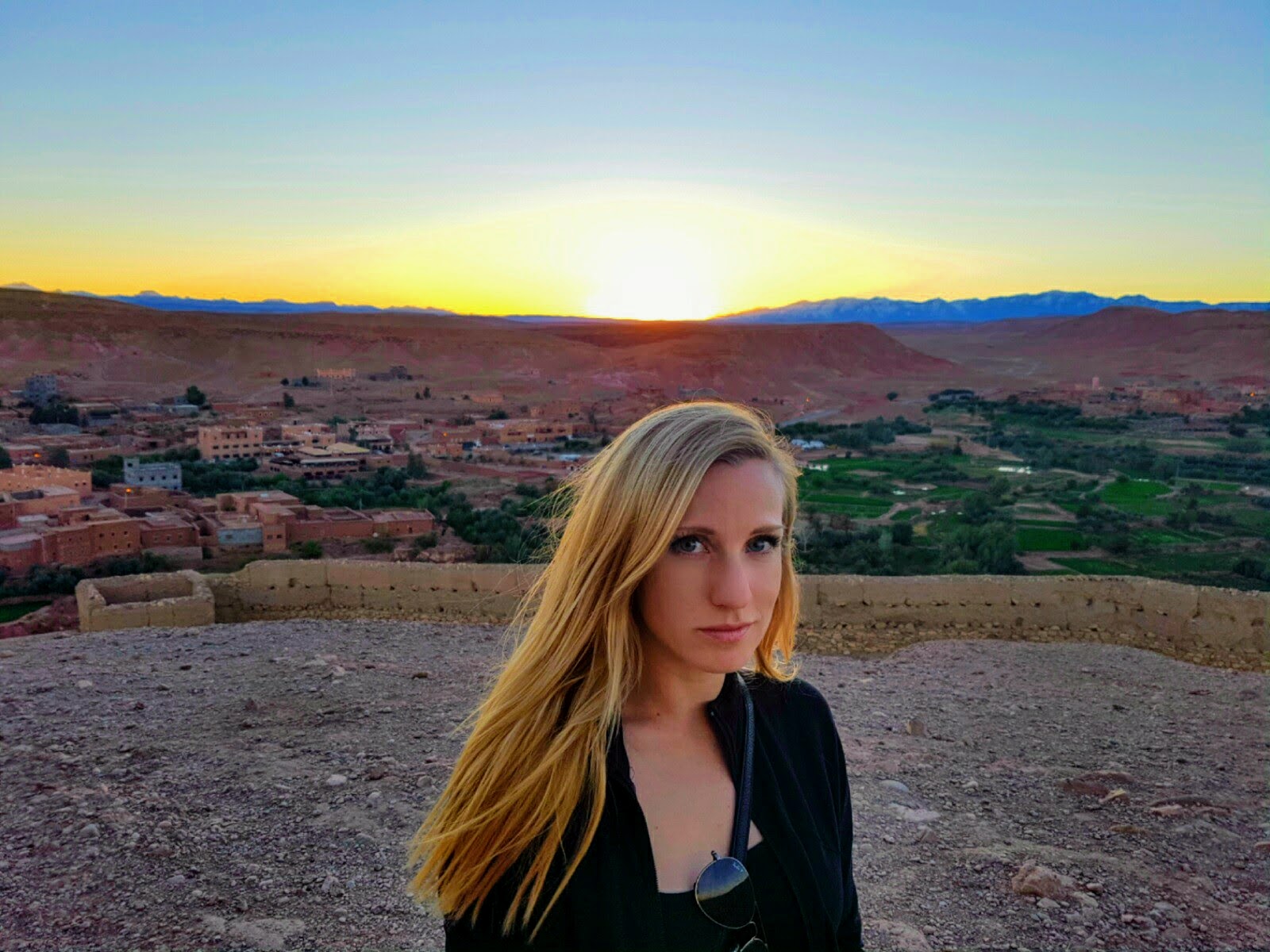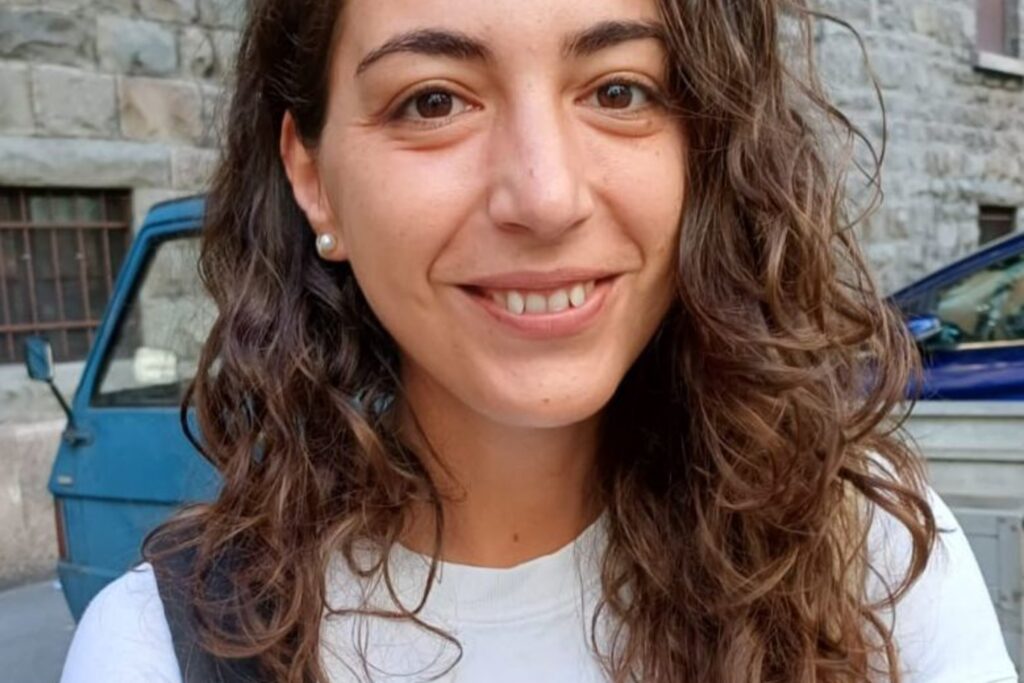Rosandra Coladonato (private)
Rosandra has recently completed her PhD in social cognitive psychology at the University of Trieste, Italy, under the supervision of Prof. Andrea Carnaghi and she has begun a postdoctoral position under Prof. Mauro Bianchi.
Mary Ann: How did you first become interested in psychology?
Rosandra: First, from the show “Lie to me”. I loved the idea of detecting lies on people’s faces. I always felt like I had an innate predisposition for reading the behavior of others, so I wanted to study that. I realized this was too specific for the bachelor’s, but communication and intergroup relations was something that I could study in social psychology. I moved to Trieste from Bari, and I selected the master’s program in social and developmental psychology. In the first year, I had Group Psychology with Andrea. The first day I almost cried when I heard him speaking about the topics: contact hypothesis, intergroup relations… I had goosebumps, and I said, ‘okay, this is what I want to do’. When I attended Andrea’s classes I realized how these untouchable things, like prejudice and stereotyping, can be measured in a way that’s precise. That was something that I never thought of before and I fell in love with this idea that you can measure something untouchable. Before the end of the master’s I asked to work on the thesis with Andrea and I told him that I would like to do a PhD on this. We organized the master’s thesis so I would learn a lot and then also try to apply for a PhD position.
M: And what project were you working on with Andrea during the master’s?
R: I worked on the imagined contact hypothesis. We used imagined physical contact as a strategy to reduce racial prejudice. It was so cool. I spent four months just selecting the pictures we would use and learning how to do the morphing technique. I used MATLAB, and I had no idea how to use any programming language. For four months, every night, I felt sick, because I got these numbers, and it was always red – “something is wrong! Error code bla bla bla!” But then, suddenly, I understood the code, and I realized, I like this. We showed participants a picture of two hands touching each other. In one condition they were one white and one black, and in the other condition two white. We had a categorization task, so people had to say if someone was black or white. We had pictures of black and white people, and all the shades in between. When they had imagined positive physical contact with a black person, they were more likely to categorize the person as white, or it took longer to categorize them as black. Usually we’re very fast to say ‘you’re not in the ingroup’, which is called ingroup protection. If you have only one small thing that makes you different from my group, you are the outgroup. But when we use the contact in a positive way, it’s like you’re more open to categorize people as part of your ingroup.
M: Social cognitive psychology sometimes treats categories as though they’re interchangeable, or operate in the same way. For example, the normative race is white, and the normative gender is man. But to what extent do you think different categories, like race and gender, are really processed in the same way?
R: That’s a big question. We try to understand how a combination of categories, in general, would be perceived. We used age and sexual orientation, but we hope that the model that we’re building would also explain other category combinations. The idea is that age and sexual orientation are only an example, but this would apply to all the other categories.
M: What’s your experience talking about your research with family and friends?
R: I think there are four categories. Some people are completely enchanted by what we do. I think they feel the same as I did at the beginning of the master’s – ‘oh you’re measuring this, it’s something that you cannot touch, but you’re doing it!’ Some people like to hear about it because they like to think about the practical applications. Sexual orientation is a hot topic in our society now, so if they are interested in that, they think it’s something that we should know, and we should recognize that there’s some part of the population that’s unseen, that’s invisible. The fourth category is boyfriends and girlfriends – they have no choice. My boyfriend had an important role during this experience, he was understanding, he listened to me a lot. But I recently discovered that if I wasn’t his girlfriend, he wouldn’t listen to me at all. I’d say, ‘we changed this, and it’s never been done before’ – but if you’re not inside academia, after you’ve heard one thing, it’s the same. In the middle you have people like my father. After I published a paper I was so proud of, and I told my father, and he said ‘okay so what’s next, are you going to an association, are you going to speak to people, how are you improving society, are you going to an LGBT association to warn them?’ I said ‘no, that’s not my job’. My father thinks we should do something on a practical level after the data are published, like volunteering to help an organization based on research findings. My least favorite part of surveys is writing the debriefing, and in papers, writing the practical implications. It’s not that I find it useless, it’s that we don’t work on that, we work on social cognition. I wouldn’t tell an activist what to do. I don’t know what to do on a practical level. I studied to become an expert in social cognition. There’s someone else who would read what we wrote and apply it. I don’t fit that role because I didn’t study that. The third group of people, like one of my close friends, thinks that everything that we do is bullshit. No one cares, and only the intervention parts like designing a social campaign to mitigate homophobia, should exist. But in this PhD, could you imagine having time to do interventions too?
M: How has your research changed your own perception of the world or people or yourself?
R: Intersectionality changed my way of seeing people. I’m a girl from the south of Italy, and I didn’t realize how this affects my life. The discrimination against women is well-known, and there’s also discrimination against people from the south – they are lazy, loud… but I hadn’t thought about the combination of the two of them. Through my research I read about the sex lives of people with disabilities, and we are not used to thinking about people with health problems having sex. Now I try to consider every side of someone’s identity. I was asked at a conference in Poland about the connection between my research and myself, and I’d never thought about that. I didn’t feel like I had to bring something of myself into the research, but I felt like studying this is already a part of me. The fact that I like social psychology is part of me, regardless of the social categories I’m studying. I don’t think I specifically need to bring Rosandra into this.
M: You’ve just finished your PhD – congratulations! And you’ve already started a postdoc position. Do you want to stay in research, and if so, are there any specific topics that you would like to study in the future?
R: I would love to stay in research, and continue in stereotypes and prejudice, and an intersectional approach. It would be cool to study the perception of people from the south. When I first moved to Trieste, I used to change my accent. I didn’t do it fully consciously, and I know now that I was embarrassed of my origin. Now I’m very proud of it, but it would be cool to understand more about this.

Language and images — Social inclusion through subtle cues in organisational communication (Italy)

nice article.thanks